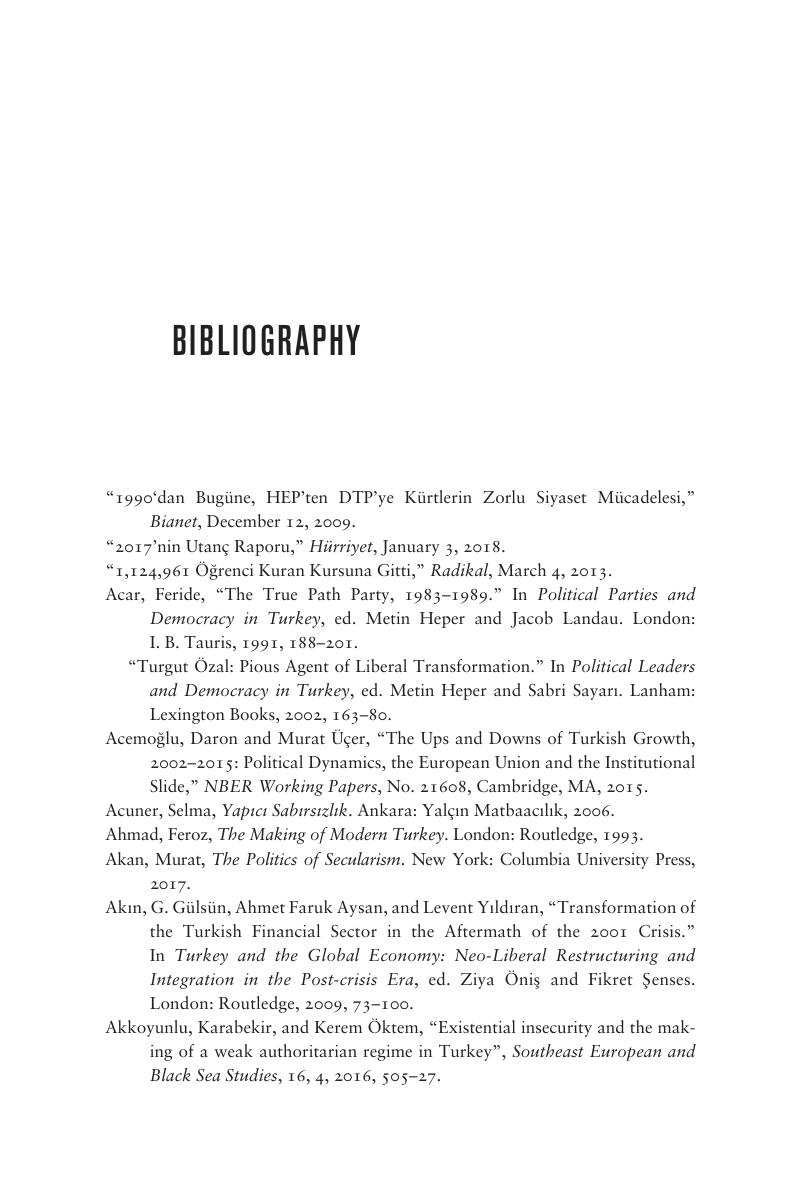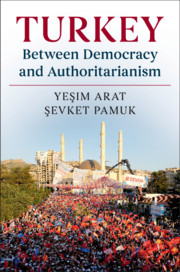Book contents
- Turkey Between Democracy and Authoritarianism
- Turkey Between Democracy and Authoritarianism
- Copyright page
- Dedication
- Contents
- Maps and Tables
- Preface
- Abbreviations
- 1 Introduction
- 2 A Long Wave of Urbanization
- 3 From Military Rule to Civilian Politics
- 4 Islamists in Power
- 5 Uneven Economic Development and Domestic Politics
- 6 The Kurdish Revolt: Nationalism and Ethnicity
- 7 Between Europe and the Middle East
- 8 Women’s Call for Democracy
- 9 Conclusion
- Bibliography
- Index
- References
Bibliography
Published online by Cambridge University Press: 23 August 2019
- Turkey Between Democracy and Authoritarianism
- Turkey Between Democracy and Authoritarianism
- Copyright page
- Dedication
- Contents
- Maps and Tables
- Preface
- Abbreviations
- 1 Introduction
- 2 A Long Wave of Urbanization
- 3 From Military Rule to Civilian Politics
- 4 Islamists in Power
- 5 Uneven Economic Development and Domestic Politics
- 6 The Kurdish Revolt: Nationalism and Ethnicity
- 7 Between Europe and the Middle East
- 8 Women’s Call for Democracy
- 9 Conclusion
- Bibliography
- Index
- References
Summary

- Type
- Chapter
- Information
- Turkey between Democracy and Authoritarianism , pp. 273 - 288Publisher: Cambridge University PressPrint publication year: 2019



